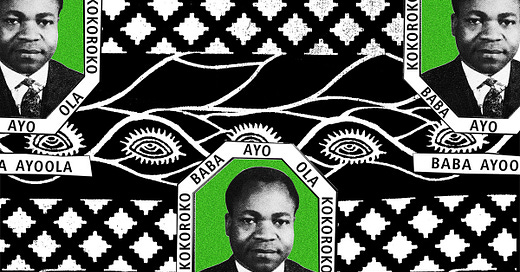I’ve carried a deep admiration for London’s Kokoroko ever since spotting them on Sofar Sounds in 2016, before being permanently seduced by “Abusey Junction” (from 2018’s We Out Here comp). The collective magnet is the power of the all-star, all-women frontline of trumpeter/vocalist Sheila Maurice-Grey, alto saxophonist/vocalist Cassie Kinoshi and trombonist/vocalist Richie Seivwright: having women lead a music globally associated with Fela Kuti (he of the 28 wives) is in itself a statement, and the women here are three pre-eminent instrumentalists, massive in heir own right. (Comb through their individual discographic contributions as further proof.) But there’s something else going on with Kokoroko that makes them stand out from all the folks practicing Afrobeat around the world. There’s a unique balance at play in their music: measured intensity and professional precision, with an off-handed casualness and an almost-laidback nature — two emotional sound spaces that, to my ear, rarely overlap in Western dichotomies. Yet, here we are. According to the text that accompanies the new single, “Baba Ayoola” was written as tribute to Kinoshi’s grandfather and is “an invitation to celebrate life.” And you can hear that celebration in the fanfare explosion of voices and horns (sounds almost like Kamasi), and in the sweet interplay of Duane Atherley’s bass, Toby Adenaike’s guitar, and the percussion of Ayo Salawu and Onome Edgeworth. Yet elsewhere, “Baba Ayoola” simply floats, on what sounds like a blend of pitch-shifting keys (c/o Yohan Kebede) and guitar feedback, less related to a groove pocket than to space-rock. Kokoroko’s modern Afrobeat is just not like the others.
Discussion about this post
No posts


